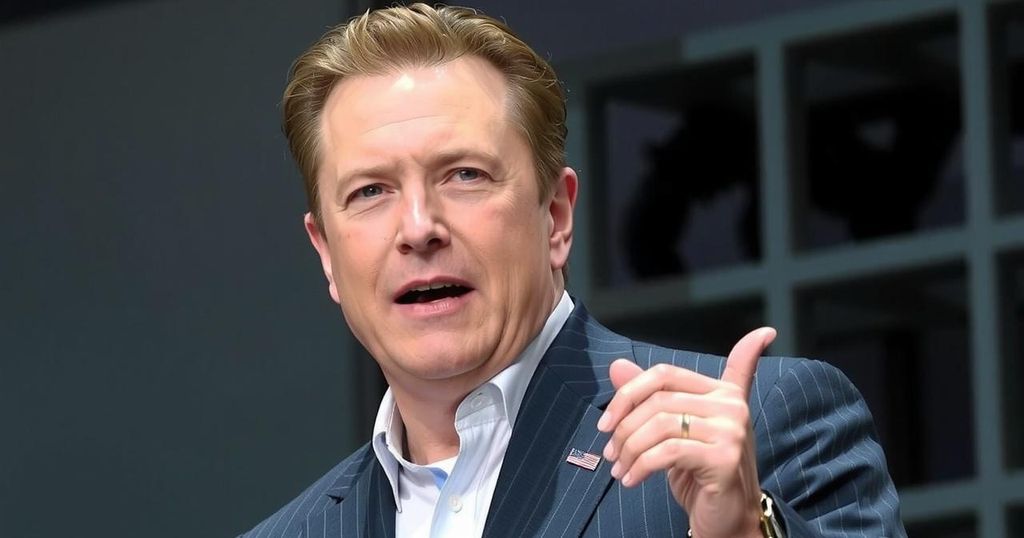Germany Accuses Elon Musk of Interfering in National Elections

German officials have accused Elon Musk of attempting to influence the upcoming parliamentary elections by endorsing the far-right AfD party. His support, communicated through social media and an op-ed, has drawn ire from government representatives. Amidst widespread criticism, Musk maintains that the AfD offers a solution for Germany’s economic challenges, despite its extremist connections being well-documented.
Germany’s government has formally accused Tesla founder Elon Musk of attempting to meddle in the upcoming parliamentary elections by endorsing the far-right Alternative for Germany (AfD) party. His social media activity and an op-ed in a prominent German newspaper, asserting that the AfD is positioned to restore fiscal responsibility, have raised alarms among officials. Musk’s characterization of the party, coupled with timing barely weeks before the elections, has led to allegations that he is trying to sway the German electorate in favor of the AfD, whose extremist ties have been well-documented. Government spokesperson Christiane Hoffmann remarked that while Musk is entitled to his opinions, they can also reflect unfounded nonsense.
Musk’s recent criticisms of Chancellor Olaf Scholz and his claim that “Only the AfD can save Germany” have sparked further controversy. In a detailed op-ed published in Welt am Sonntag, Musk dismissed the notion that the AfD is extremist, pointing to its leader’s personal relationships as evidence against such a characterization. Furthermore, Musk argued that the German economy suffers from overly burdensome regulations and asserted that traditional political parties have faltered in their responsibilities. This has prompted significant pushback from both U.S. and German political figures, given the AfD’s history and designation as an extremist group by German intelligence. Minister Karl Lauterbach described Musk’s input as “undignified and highly problematic.”
The AfD, which has systematically been excluded from coalitions among mainstream parties, has rejected efforts to label it as extremist. Nevertheless, the party remains a contentious entity within German politics, and Musk’s vocal endorsement has aggravated the already tense political landscape ahead of the elections in February. The backlash against Musk was compounded by critiques of Welt am Sonntag for publishing his piece, resulting in the resignation of the opinion editor in protest against the decision.
The political climate in Germany is sensitive due to the proximity of parliamentary elections, scheduled for February. The Alternative for Germany (AfD) party, known for its radical right-wing position and ties to neo-Nazi groups, has faced widespread rejection from mainstream political factions. The government’s concerns over external influence in domestic matters are heightened by Musk’s evident engagement, especially given his global profile and ability to reach audiences through social media. The implications of Musk’s remarks extend beyond mere endorsements; they challenge the integrity of the election process and raise questions about foreign intervention in national governance.
The incident illustrates the potential ramifications of high-profile individuals influencing political debates in foreign countries. As Germany prepares for a critical election, the government’s swift and condemnatory response demonstrates its commitment to safeguarding electoral integrity against perceived external interferences. The controversy surrounding Musk’s endorsements highlights the significance of political representation and the challenges faced by established parties in countering extremist narratives.
Original Source: www.foxnews.com




